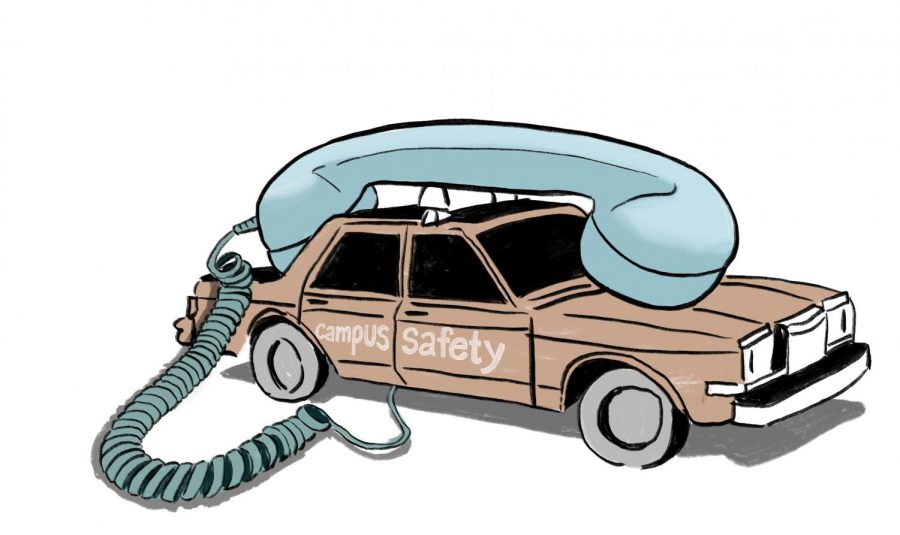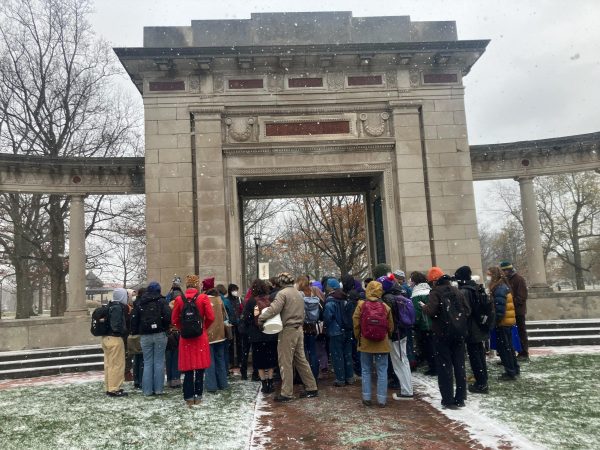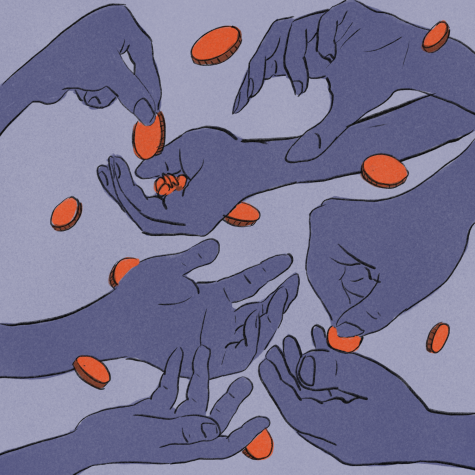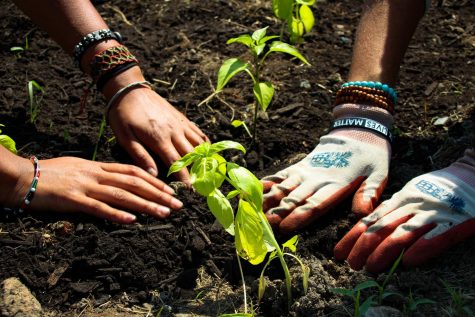Black Identity in Face of ACAB and Student Karens
One Friday evening this semester, I was laughing and talking with my friends in a common dorm space when three white Campus Safety officers approached us. One of the officers seemed to have come along solely to make everyone feel uncomfortable. He came up from behind and ruffled my Asian friend’s hair. He dropped a crass joke insinuating that my female friend was a dog, or a bitch. When I called him out, he stared me down. He used his power against me with no purpose other than to unsettle me, a Black student because I caught him behaving out-of-line. I hurt his ego.
The officers were there because another student called Campus Safety for students being too loud. It wasn’t even past midnight.
In this country, over the last year we watched as public opinion turned against the police; “All Cops Are Bastards,” echoed throughout our social media circles and scrawled on cardboard protest signs. We shook our heads and spitefully scorned the emergent “Karens” — white women who call the police on Black people they feel “threatened” by so often. We laughed when Karens and cops alike ruined their reputations after proving their racism to the world.
Campus Safety is not the police, and whoever called Campus Safety on my friends and me was probably not a 42-year-old republican named Karen. But structural imbalances and racist policing can be easier to see out in the world — bring it to a smaller scale, focus on “our community” at Oberlin College, and the issue becomes less visible and “nuanced.” It isn’t just the police that cause the incidents, tragedies, and murders that fuel the Black Lives Matter movement. The power structures of any badged rule enforcement can easily result in abuse, which can be motivated by racism, sexism, transphobia, or any kind of misattributed aggression. Would you or your friends call Campus Safety on a student who is breaking the rules or in some way disrupting your “peace?” Potentially. I know from personal experience that despite the systemic anti-racist tirade that seems to be saturated in our media, students at Oberlin aren’t self-aware enough to see the role they play in these systems because even after all the learning and unlearning, they still call Campus Safety on their Black and Brown peers.
When Campus Safety was called on me and my friends, the interaction was not cordial or professional or appropriate. It did not make me and my friends feel protected; it made us deeply unsettled. Because the Campus Safety officer had behaved out of line, I went to report the incident to Campus Safety.
After my first meeting with Campus Safety, I felt that they didn’t condone the offending officer’s misconduct. Still, I was not allowed to know his name because the other security officers who were present for the incident had already opened up a report on the situation without consulting any of the involved students. Instead of protecting us in the moment, they stole the narrative for their colleague, leaving us in the dark.
I insisted on a meeting with Assistant Director of Campus Safety Clifton Barnes, where he explained that they could not give details about how The Officer was disciplined, as it violates personnel privacy. Instead of more information, I insisted on a personal apology from The Officer that holistically acknowledged his abuse of power and dedication to reform. This was promised to me by Barnes, but I have yet to hear back.
From my meetings with Campus Safety, I couldn’t help but feel that, when conflict arises, this cohort values protecting each other over protecting the students. Other Campus Safety officers claimed they had worked with The Officer for over 20 years and had never heard such reports about him; that it was unusual for a student to come forward against an officer. I suggested that perhaps The Officer behaves this way more often than they realize, and students have been historically disinclined to report him because of how his power has always protected him. They thanked me for my courage in coming forward. Reporting an offending officer should not be a courageous act. It was not a rewarding experience; it was fraught with frustration, emotional retelling, vulnerability with none received back. I have no way of knowing exactly how this behavior is dealt with.
On top of prejudice that I already anticipate feeling from authorities as a Black student, I now feel like I have a target on my back for going against Campus Safety. Since the incident, I have been locked out of my house, but I have not called Campus Safety even when it felt dire because I do not feel safe to contact them for any reason, no matter how blameless. The Officer is still out there and probably still very angry at me. Officers who sympathize with him will also know my name and feel resentment that they can use against me every moment I am in their domain.
Failure of authority always hurts Black people the most in this country. Black people — Black kids specifically — are more likely to get in trouble due to racism, implicit bias, or privilege that people are not aware they are participating in consistently. In my experience, in class, Black students are more likely to be ruled “rowdy” and “disruptive;” At stores, we are more likely to be followed for suspected shoplifting; On campus, we are more likely to be reported to or sought out by Campus Safety for being loud, skateboarding, “loitering,” and smoking marijuana.
I’ve experienced that we are more likely to be reported to Campus Safety by fellow Oberlin students. Students call Campus Safety even when they know nothing about us, our actions seem implicitly more wrong, wild, and dangerous because we are Black. White students at Oberlin aren’t always aware that this is why they’re uncomfortable, which makes it so insidious.
There’s a lot of rhetoric on campus about meeting people at their comfort levels, but being a Black student at this school too often means navigating white comfort. Finding ways to speak to my white friends that put them at ease. Molding to the “professional” rhetoric of academia to make a comment in class. Obies assure me that they don’t want to silence me, they post information about anti-racism on social media, and insist they’ve changed after every “learning experience” often at the expense of a Black student. But there needs to be recognition that Oberlin still exists within a broader, racist world. Campus Safety is a microcosm of law enforcement in America. Despite our best efforts, we are all affected by systems of oppression much larger than ourselves.
Ultimately no one can be certain that they aren’t affected by racial bias stereotypes when asking a person of color to adjust their behavior. That is for the person of color in question to determine.
Open conversations must ensue, calling Campus Safety is a weapon that privileged students can wield recklessly. If the selfish choice to call Campus Safety for your own comfort is made, the consequences for a Black or Brown student in that interaction can be far more serious than for any white person.
There needs to be outside recourse against Oberlin Campus Safety. We need a mediator to stand up for students against workplace camaraderie. It is senseless that for a student to file a complaint against an officer, they must appeal to their coworkers and trust them to handle it from within. As security officers, the trust that students give Campus Safety needs to be earned and maintained through transparency. At the very least, their pictures should be with their names on the staff website. We should know the faces that we’re supposed to trust and identify the officers that abuse that trust like The Officer. Students, instead of needlessly calling on Campus Safety, hold them accountable.





